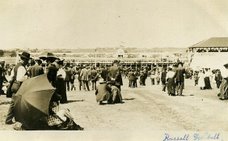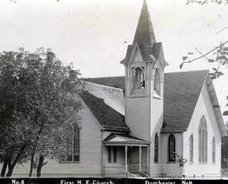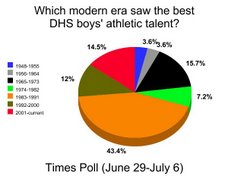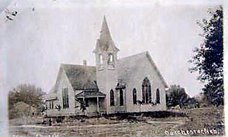 Today we look back at one of the most intriguing pieces of Dorchester's past: the Thompson Rodeo and Elmwood Pony Farm.
Today we look back at one of the most intriguing pieces of Dorchester's past: the Thompson Rodeo and Elmwood Pony Farm. If we reversed the calendar 100 years, chances are you'd be making plans right now to attend the Thompson Rodeo in late September.
Owned and operated by Colonel W.J. Thompson, the Elmwood Pony Farm was located in the northeast section of Dorchester. The farm sat on present day 10th Street, between Lincoln and Fulton Avenues.
Dating back to the 1890s, the Elmwood Pony Farm was one of the largest pony farms west of the Mississippi River. By the 1920s, the pony farm was home to more than 300 ponies.
 Thompson's pony farm was a popular destination for children from miles around, according to accounts of longtime residents. Children who lived in the country were even permitted to take home a pony and ride it all summer, if they agreed to keep it fed well.
Thompson's pony farm was a popular destination for children from miles around, according to accounts of longtime residents. Children who lived in the country were even permitted to take home a pony and ride it all summer, if they agreed to keep it fed well.
Each September, Colonel Thompson took as many as 35 Shetland ponies to the Nebraska State Fair for rides. He entered many more of the animals in the fair's show contests.
 In 1930, Colonel Thompson's son, Wallace, started the Thompson Rodeo. It was usually a three-day event held each fall, complete with fighting broncos, cowboys, clowns, trick riders, cowgirls, bull doggers, concessions, rides, dancing and "whoopee."
In 1930, Colonel Thompson's son, Wallace, started the Thompson Rodeo. It was usually a three-day event held each fall, complete with fighting broncos, cowboys, clowns, trick riders, cowgirls, bull doggers, concessions, rides, dancing and "whoopee." Pictured at the top of this story is an original banner from the Thompson Rodeo. The banner is now hanging in the Saline County Museum.
The Dorchester rodeo attracted many top riders from around the country, as well as local talent. An Oklahoma rider even came within 0.7 seconds of the world's record in calf roping at the Dorchester Rodeo.
Many people had high hopes that Dorchester would become a permanent rodeo on the famous circuit that included Cheyenne Frontier Days, as well as the Burwell and Sidney rodeos.
But by 1940, the rodeo hit a spell of heavy rain and events were cancelled.
By 1942, the country was fighting WWII and the Thompson Rodeo closed its doors permanently, becoming another relic of our community's history.
(This is a reprint of a Times article that was published originally in August 2007.)



















































No comments:
Post a Comment
Village Dweller checks all reader comments to determine if they are appropriate for print.